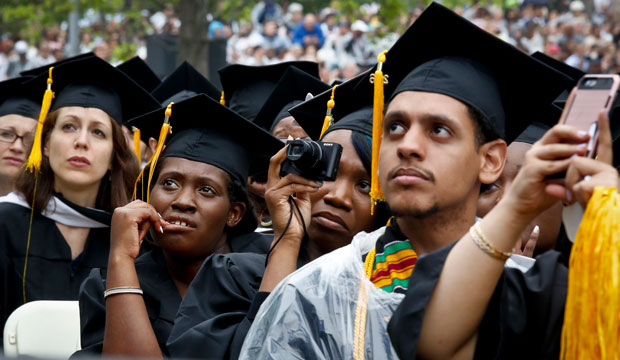Wealth accumulation among black and Hispanic adults is hampered by student loans, according to a new study by the University of Illinois and the University of Michigan.
The study, a joint effort by professors Min Zhan and Xiaoling Xiang, finds that black and Hispanic adults who graduate college with debt burden have significantly lower net worth at the age of 30 than students who don’t borrow to pay for college.
Students belonging to these two races owed an average of about $14,670 when they graduated, compared to $2,946 for students of other races in the full sample of 1,455 young adults.
“Black and Hispanic adults in the study who reported having outstanding student loans when they graduated college had $36,000 less in net worth than their peers at age 30,” the researchers found.
Professor Zhan termed the findings concerning because they suggest that education loans may compromise minority students’ wealth-building longer than previously thought.
“They also show evidence that education loans negatively impact both the financial and nonfinancial assets of black and Hispanic young adults,” Zhan said.
According to the professors, Pell Grants constitute the most effective investment by the federal government for helping low and moderate-income students access college than offering additional student loans and other types of credit.
“Addressing college students’ financial needs with additional education loans and other types of credit may be counterproductive for minority young adults’ future financial health and may even magnify racial/ethnic disparities in wealth,” the researchers wrote.



